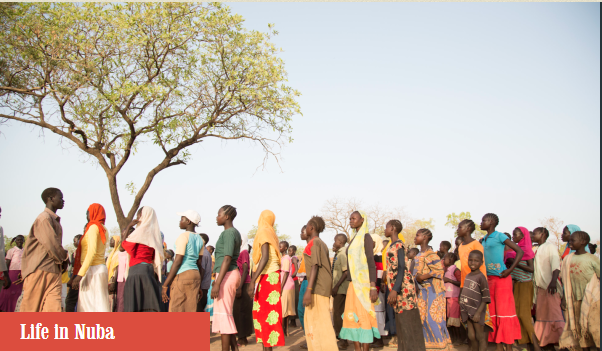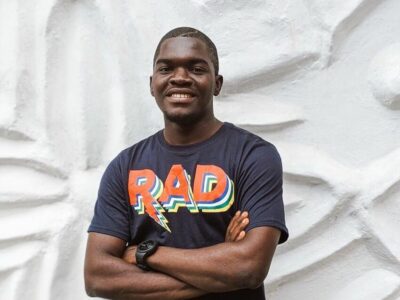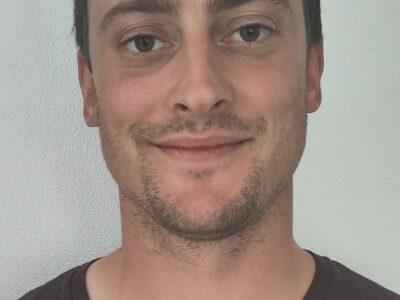
Life in Nuba. Republished with the authorisation of Nuba Reports.
Mainstream media can play a crucial role in fueling or reducing violence in conflict situations, potentially helping to build or to disrupt peace. So little is known about the ongoing clashes within and between the two Sudans, in part because of the limited information allowed out of the country by the the Sudanese government. This creates a unidirectional flow of information to the international community.
Rising Voices conducted an email interview with Ryan Boyette, the founder and Executive Director of Nuba Reports, an independent team of journalists reporting from the war-zones in South Kordofan and in the Nuba Mountains of Sudan. We spoke to Ryan about their work and the challenges they face daily to provide alternative news reports to the world about the situation in Sudan.
Rising Voices: Tell us more about the Nuba Reports project. We know the very basic information provided on your official website and were able to draw a picture of who you are. But what lies at the heart of Nuba Reports?
Ryan Boyette: Nuba reports was started to shed light on a very difficult conflict to report. When war broke out between the Sudan People's Liberation Movement-North and the Sudan Government I realized that there was a lack of credible information available to international policy makers, NGOs and media. That is why we started NR, to be a source of information for this audience, and our hope is that it will contribute to humanitarian aid to the people who are suffering as a result of the conflict, and bring to light the atrocities that are taking place in the conflict.
RV: The reporters: Who are the journalists? Did they begin as citizen journalists or were they trained before?
RB: Our reporters are in many ways victims of this conflict. Some were forced to flee their homes with their families while others had to put their plans of going to college and getting married on hold. All of them have a story of how the war affected their lives but all of them are united with the desire for the world to see what they witness every day. The journalists of Nuba Reports work in the areas they grew up in so they know most of the people in their community and the surrounding communities. Before any of our reporters joined the team they didn't know the correct way to hold a camera or ask questions in an interview. But now after 4 different trainings all 4 of our senior journalist have become experts in telling stories through video, photo and interviews […]
RV: How is the reporting done? What technology is available to channel information from Darfur to the internet?
RB: We currently do not have any full time reporters in Darfur. We are mainly covering the conflict in South Kordofan state of Sudan and a bit in Blue Nile State of Sudan. We hope to spread to Darfur soon.
Our reporters use state of the art DSLR cameras that also allow the user to take clear and crisp video of the events that take place. The cameras are also equipped with GPS taggers so any photo of an event is also tagged with the GPS coordinates of the event to ensure factual information gathering. We use satellite phones and Satellite internet connection to pass information from the war zone in South Kordofan to our editing studio based outside of Sudan. In the editing studio we edit the video footage to create 2 to 5 minute video reports or features. We also edit all text reports coming from the field. Our team of editors is primary based of Sudanese as well. We then post the reports to our website.
RV: Why do you think foreign media is banned from Darfur? Does this ban explain the lack of coverage the conflict suffers from or it has other causes, in your opinion?
RB: Not only international media but also local Sudanese media is banned from reporting from Darfur, South Kordofan and Blue Nile. Many newspapers in Khartoum have been shut down for reporting on the conflict in these different zones. Several members of the government of Sudan have been accused of war crimes by the ICC by crimes committed in the Darfur conflict. I believe the government of Sudan does not want media to access the war zones in these different regions of Sudan as to not expose war crimes that are currently taking place.
RV: What about security? How do your journalists deal with the danger of reporting?
RB: Before any of the journalist started working with Nuba Reports we explained to them the risks involved in the work, but all of the reporterss have expressed that it is a risk they are willing to take for their people in Sudan. In the last war, the Nuba areas of South Kordofan were completely surrounded by government-controlled regions that kept South Kordofan cut off from the rest of the world. The reporters want to make sure that their people will not be cut off again […]
RV: Is there a difference between the way the conflict is seen from outside and how it actually is?
RB: Yes, there is a difference. Many people try to group this conflict as just being ethnic, religious, or political, but I believe on the ground it is not just one thing but a mixture of all of these issues. It cannot just be a war of Black versus Arab because there are many on the government side that are also black and many on the SPLA-N side that are Arab and other ethnicity. It can just be Christian vs Muslim because there many Muslims fighting on the side of the rebels. But at the same time the government of Sudan uses any means to divide people either on ethnic or religious lines to maintain political control over the country.
That concluded a productive exchange with Ryan Boyette, the Founder and Executive Director of Nuba Reports. Much still needs to be done to achieve a sustainable peace in South Kordofan and in the Nuba Mountains. More media transparency and neutral reporting as done by Nuba Reports would be an excellent way to lead the way for a peaceful solution.
You can follow Nuba Reports and their current projects on Twitter and Facebook.




2 comments
Wow, incredible project and bravery.
I would to be considered for this membership. I would like to receive reports and images.
Thank you
Kind regards
Salim Abdelrhman Dekin